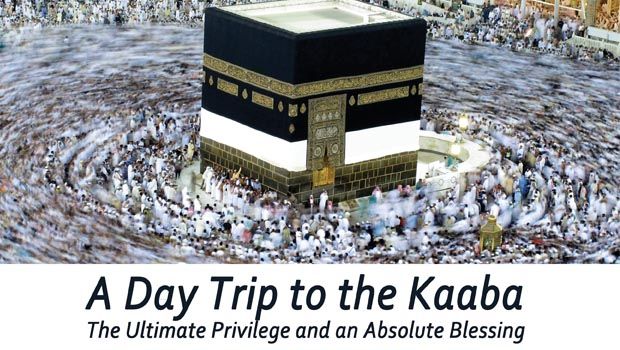In 1954 Muhammad Ali was 12 years-old and his bike was stolen after he left it in front of a Louisville, Kentucky department store. A police officer happened to be nearby and Ali approached him to report the theft. He told the officer that he wanted to “whup whoever stole it.” The officer, Joe Martin, was also the coach of a boxing program at Columbia Gym and told Ali that if he was going to “whup” somebody, he better learn to fight properly. Ali showed up the next day at the gym and the rest is history. Ali has said that Martin is the one who taught him to “float like a butterfly, sting like a bee.”
Considered one of the greatest, if not the greatest, in boxing history, Ali won three World Heavyweight titles. His words, however, speak of a deep understanding of the dedication it takes to excel: “Champions aren’t made in gyms. Champions are made from something they have deep inside them – a desire, a dream, a vision. They have to have last-minute stamina, they have to be a little faster, they have to have the skill and the will. But, the will must be stronger than the skill.”
Ali retired from boxing in 1981 and brought that same drive and dedication to social activism and humanitarian work. But as early as 1966, Ali was already showing his benevolence, visiting a home for orphans in Notting Hill, London, sitting with a large group of children and reading a book to them. This benevolence has been fully actualized over the years. As noted on the Muhammad Ali Center website, alicenter.org, Ali “has hand-delivered food and medical supplies to such needy sites as the Harapan Kita Hospital for Children in Jakarta, Indonesia; the street children of Morocco; and Sister Beltran’s orphanage for Liberian refugees on the Ivory Coast, to name just a few.”The Muhammad Ali Center was opened in 2005 in Louisville, Kentucky as the realization of Ali’s long-held desire of “creating a place to share, teach and inspire people to be their best and to pursue their dreams.” Despite a diagnosis of Parkinson’s disease in 1984, Ali has worked tirelessly to spread peace and freedom around the world. During his boxing days, Ali was known for his bravado, proclaiming himself “the greatest.” Yet, years later, as he matured and deepened in spiritual understanding, Ali said, “God gave me this physical impairment to remind me I am not The Greatest — He is.”
One touching story is told about a luncheon held in Muhammad Ali’s honor at Britannia Stadium in Stoke-on-Trent in Britain in 1997. Ali was there with his wife Lonnie. By 1997 his tremors were severe and his speech was slow and slurred. A man approached Ali and his wife and they recognized in him the tremors of Parkinson’s. The man told them that his teenage son was embarrassed about the way his hands shook and didn’t want to go anywhere with him in public, but that he loved Muhammad Ali and had enthusiastically come to this luncheon. Lonnie asked the man to bring his son to their table. The man and his son sat with the Ali’s for a while and finally Lonnie told the boy that her husband was never embarrassed by his condition and that it only made him stronger. She told him to be proud of his father and to help him, that their solidarity would make them both stronger. The father and son had tears in their eyes and hugged each other, thanking Muhammad Ali and his wife Lonnie for the inspiration.
This year Ali has turned 70. John Yarmuth,U.S. Representative from Kentucky, introduced the Muhammad Ali Legacy Act to “honor his values and build upon his humanitarian work.” The bill would allow non-profit organizations to work under the auspices of the State Department to promote the values that Ali has lived and worked by, including respect for all people, helping others, and promoting spirituality. It would also advocate peace-building, violence prevention, and the combatting of radicalism worldwide. On the floor of the House of Representatives, Yarmuth said about Ali, “He’s a man of peace and justice, of patience and grace, a visionary who changed the boxing world so he could change the entire world.”
None can argue that Muhammad Ali doesn’t do his part to change the world. Ali has said, “Service to others is the rent you pay for your room here on earth.” And serving others is what he has done, as a devotion, since retiring from boxing. According to the Muhammad Ali Center website, he travels “upwards of 200 days a year” and through his relief work has provided “an estimated 22 million meals to feed the hungry.” Ali has collaborated with Yank Barry through the Global Village Champion Foundation to provide humanitarian relief in numerous countries across the world including Albania, the Bahamas, Belarus, Bosnia and Herzegovina, Burundi, Buryatia, China, Colombia, Cote d’ Ivorie, the Democratic Republic of Congo, El Salvado, Guatemala, Honduras, Indonesia, Kazakhstan, Kenya, Liberia, Mexico, Morocco, Mozambique, the Netherlands, Nicaragua, Peru, Romania, Russia, Rwanda, South Africa, South Korea, Sudan, Turkey, Ukraine and Venezuela.
In recognition of his humanitarian work, Ali was appointed the United Nations Messenger of Peace in 1998 and in that role has hand-delivered food and medical supplies to poor and war-torn regions and populations around the globe. He supports a myriad of projects to end hunger and eradicate poverty, and to provide educational opportunities to children in the poorest communities. He has said, “To be able to give away riches is mandatory if you wish to possess them. This is the only way that you will be truly rich.” Whether it’s sending $100,000 to a senior citizen center for the handicapped to keep it from closing, helping to negotiate the release of hostages in Iraq in 1990, traveling to South Africa to meet with Nelson Mandela when he was released from prison, or being chosen to carry the inaugurating flame for the 1996 Olympics, Ali is always a commanding presence, eliciting love and admiration everywhere he goes. Called “Mr. International Friendship” by former President Jimmy Carter, Ali has more recently been characterized by President Obama as a “force for reconciliation and peace around the world.” In 1997 Muhammad Ali received the Arthur Ashe Courage Award and in 2005 he was awarded the Presidential Medal of Freedom.
While he came from a Baptist-Methodist background, Alijoined the Nation of Islam in 1964 and in 1975 embraced the tenets of Sunni Islam. In Muhammad Ali: His Life and Times, author Thomas Hauser quotes Ali on his experience when first becoming Muslim: “I’d sneak into Nation of Islam meetings through the back door. I didn’t want people to know I was there. I was afraid, if they knew, I wouldn’t be allowed to fight for the title. Later on, I learned to stand up for my beliefs.” Being outspoken about his beliefs and convictions led to him being seen as a controversial figure in his boxing days. The transformation to a person who is considered aphilanthropist and elder statesman is a remarkable story. These days he has replaced braggadocio with humbleness. “Faith is something you don’t brag about,” he said. “It’s not for publicity. In your heart and soul, only God knows that it’s good. He’s the only one you have to face in the end.”
In a book co-authored by Hauser and Ali himself, Healing: A Journal of Tolerance and Understanding,Hauser says, “Muhammad Ali is the most loved person in the world. Everywhere he goes, wherever he goes, people of all colors and religions crowd around, hoping to get close to him. I’ve seen it happen so many times, and each time, I ask myself, If we can all get together and have a meeting of the minds on Ali, why can’t we all get together, period? I look at this man and I say to myself, God is trying to tell us something.” Ali and Hauser articulate a beautiful message: “If today’s world is to be truly healed, that healing must be achieved one person at a time. The tolerance and understanding necessary to heal must come from each and every one of us, arising out of our everyday conduct, until decency reaches a flood tide.”
That commitment to healing through tolerance, understanding, and decency continues to impel Ali. He has long campaigned for debt relief for the poorest of countries, many of which are in Africa. A World Bank program called the Heavily Indebted Poor Countries Initiative (HIPC) was put in place in 1996 as a result of extensive lobbying by individuals and NGO’s. As of December of last year, 39 countries (of which 33 are in sub-Saharan Africa) were deemed by HIPC to be eligible. To date, 36 of those countries have received some debt relief. Such relief is conditioned upon meeting a range of economic management objectives, and that the savings be channeled into health care, agricultural development, and free primary education.
Now 70 years-old and slowed down by Parkinson’s, Muhammad Ali nonetheless continues on the path he has chosen, to feed the hungry, provide medical care, alleviate suffering, and stand up for those who have been denied freedom and dignity. And he reminds us that those of us who are able to give, to donate, to contribute to the betterment of this world, should remove the impediments wherever they might be — even if in our own souls — which keep us from the caring and generosity of spirit that Islam enjoins. Muhammad Ali, the man who went from champion in the ring to champion of the disadvantaged, says, “It isn’t the mountains ahead to climb that wear you out; it’s the pebble in your shoe.”






